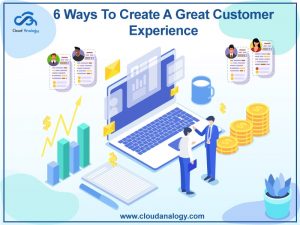Sharing is caring!
What is CRM?
Customer Relationship Management or CRM is closely related to and considered as an acronym for business and sales commonly. It didn’t take much time for CRM to become one of the most potent software and talk of the century. It was only in the 1990s that CRM came into much use and is now relabelled as ‘Customer Management.’
CRM came into use as the name suggests for the development of business and is based on the principles of relationship marketing, which goes back to the period of the start of commerce where a relationship between supplier and customer was developed.
Customer relationships have improved much after the advent of the capability of businesses to sustain relationships and this can be due to the following factors: the increasing popularity of computers and deduction in cost of computers, the increased storage capacity, upcoming new sophisticated tools for data analysis and data mining, sophisticated approach towards marketing and so on.
CRM is typically a Cloud-based software tool, which provides business with analysis of the number of people visiting their website, the number of people buying your products, the number of activities taking place on your site, customer reviews, etc. It is also important for businesses as it is the sole place of data storage, to which anyone can have access to within the organization. It also eases the way of doing business as all the communication happens in one place. Also, it is accessible from any device and does not require the installation system and management team to look after it.
Why do businesses need CRM?
Initially, in the starting phase of your business you can take down notes or create excel spreadsheets but after a point when your business grows, then this type of data planning and storage would not be sufficient. CRM based software is required for the growth of your business after a certain period of time. The main purpose of CRM is Organization.
Allocating your customer’s details, orders, in different places would create a haphazard situation. This shows the unproductivity of your team and lack of management of customer’s details, interactions. In any business, what is most at risk is a loss of data, which can be prevented by Cloud-based CRM.
CRM also provides visibility of your sales team, what they are doing as well as analytics regarding customer interactions. Creating reports manually can also be tiresome.
CRM gives an analysis of traffic driven in your site.
For instance, if analytics show that people visit your profile but don’t buy anything, then it means you’re lacking something. This will help your business to know what you’re missing and overcome this problem.
Crafting a CRM strategy
When it comes to building a CRM strategy, not only the use of right and latest technologies is required but also an apt plan from a business perspective.
1) Build your Plan
Some believe that developing a vision is a waste of time. However, if you’re not thorough with your plan, you cannot escalate ahead. This will create a problem for your team you’re working in and will create a mess.
Your plan can be anything from becoming a leader of your sales team to escalating your market research.
2) State your strategy
The strategy depends on what your plan is for the future. Suppose, your plan is to increase your sales by the end of the year.
Your strategy should be to look after insights and see what you can do to improve your sales. Which areas need to be improved and which areas require fresh content. You should decide which CRM software to use to develop your sales strategy.
3) Implementation
This stage involves putting your plan and strategy into action.
A typical obstacle faced while opting for CRM is business to retain old business strategies rather than developing and implementing new strategies.
For example, to increase your sales, a core team should be hired who will work on sales & marketing only via the CRM system.
4) Analyzing Metrics
“You can’t quantify what you can’t do” is an adage common to several businesses.
Metrics should be available to everyone and this means building dashboards for all organizational levels, from the sales representatives and managers to the executive team.
5) Define your Game Plan
Training is essential first. After building your CRM strategy, don’t always expect it to be a grand success. Start with minimal updates and improvements.
A successful game plan is essential but so is your launch. Measure and maximize your CRM technology.

Deepali Kulshrestha
Salesforce Certified Developer | Delivery Management Head
Deepali, a certified Salesforce Advanced Administrator and Salesforce Developer and CSPO Certified at Cloud Analogy, is a successful name in the industry circles when it comes to the delivery of successful projects with end-to-end testing. Deepali is a globally-renowned industry stalwart when it comes to managing Operations & Delivery Planning in driving Business Performance Management.Hire the best Salesforce Development Company. Choose certified Salesforce Developers from Cloud Analogy now.










